What to Do When You Suspect We’re Headed for Collapse
by Rob Dietz
If you’ve been paying attention to the environmental news, then you know people are pummeling the planet. Because of the way we run the economy, with continuously growing population and consumption, we are destabilizing the climate, depleting topsoil, drawing down aquifers, acidifying the oceans, and driving species to extinction. Even as we impoverish the Earth’s ecosystems, billions of us struggle daily to find enough food for a decent dinner. In this age of worldwide environmental and social turmoil, it’s natural to want to help. It’s also natural to wonder how you can possibly make a difference. These troubled times prompt each of us to ask a simple, but absolutely critical question: “What should I do?”
Before tackling what to do, let’s get something out of the way — what not to do:
- Deny the severity of the problems. Suppose you go swimming along a beach and notice an agitated 20-foot-long great white shark swimming directly below you. No matter how much you refuse to acknowledge its existence, the shark will still be there, cruising along and considering whether you’d make a satisfying snack. You are more likely to survive if you assess your situation accurately and react to your new reality. (The chances of actually meeting a great white shark are slim because of overexploitation — just like humanity’s relationship with so many species, but that’s another story).
- Refuse to take responsibility. Too many people deny not only the severity of the problems, but even the very existence of the problems. A disconcerting number of climate change denialists (perhaps better termed de-nihilists) live in virtual bomb shelters they constructed to avoid having to confront reality. It’s up to the rest of us — those who live in the real world and understand the severity of humanity’s plight — to take responsibility. We have to move with purpose and we have to move now.
- Stick with the status quo. As environmental scientists continue to overload us with sobering findings, the easiest thing to do is to keep walking the business-as-usual path. There’s a certain solace to having a “normal” career, carrying on without making sacrifices or changing behavior in ways that may cause difficulty and even pain. As social creatures, we are pre-programmed to conform to the dominant culture. But the difficulty of taking a countercultural path pales in comparison to the chronic difficulties you’ll experience if your way of life contradicts your core beliefs.
- Leave it to a higher power. Calling on a spiritual or technological force to save the day offers a soothing strategy for escaping from our environmental and social traps, but it’s also an unconscionably irresponsible strategy. People have good reasons to believe God or Google can deliver some amount of help, but that doesn’t absolve us from doing our part. We got ourselves into this mess — we must look to ourselves to find a way out.
Back to the central question: “What should I do?” Like a flock of vultures, the problems circle ominously overhead. The solutions are more like songbirds; they hide in branches and thickets, but they’re there. Despite their presence all around us, it’s still hard to spot proper solutions. It would be a huge relief to have one simple method for scuttling the vultures, but it just doesn’t exist. Solutions come with a certain degree of complexity (e.g., multiple partial solutions that are related to one another). To begin piecing together your answer to “What should I do,” then, it’s helpful to divide actions into three categories: (1) learn something, (2) say something, and (3) do something.
Learn Something
Seek out colleagues who also recognize the problems, but especially people working on creative solutions. I have found myself in the most amazing, life-enriching company while trying to learn more about how to build a sustainable and fair economy. Listing the scholars and leaders who have taught me how to think in systems and see the world through an ecological lens seems like an ill-advised exercise; I know I would omit someone, and I would feel like a name dropper. But when I think about people I’ve met on my quest to learn something, I feel so fortunate (here’s a short list of heroic “Bills”: Bill McKibben, Bill Rees, Bill Ryerson, and Bill Twist). I’m thankful to all my colleagues, even those not named Bill!
The upshot: you don’t have to slog your way through boring tomes in the dusty corners of the library. On the contrary, you can engage with some of the most compassionate and insightful people on the planet, just as long as you share their desire to help, and you commit to learning something.
Say Something
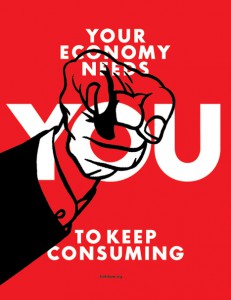
As the writers and artists at Adbusters effectively demonstrate, there are always opportunities to speak up and ask, “Why?”
Saying something (at least saying something intelligent) is tougher than learning something, especially for us introverts. My method of saying something consists mostly of writing. I co-wrote a book. I wrote articles (for example, this one in USA Today). I wrote Daly News essays. It’s easier for me to say something clear with a pen or keyboard than with my vocal chords (although I occasionally work up the courage to stand in front of a live audience and pass along what I’ve learned).
If you keep your eyes, ears, and heart open, you’ll find opportunities to say something, and it doesn’t have to be on some grand stage. If you’re a student, ask your professors and classmates probing questions:
Why does the economy have to keep growing? How much consumption is enough for a person, a community, or a society? What are the ultimate goals of our economy?
If you read news reports, write comments and send letters to the editor. A continuous procession of articles in praise of continuous economic growth marches across the front pages of mainstream media sources, providing ample opportunities to respond.
If you participate in a book club, try Enough Is Enough or something similar. Where my coauthor, Dan O’Neill, lives in Leeds, UK, a dedicated group of activists is strategizing how to build the kind of economy described in the book. The same thing has happened where I live in Corvallis, Oregon, and we’ve heard about other groups forming in Bermuda and Wisconsin. Changes begin with the simple act of discussing and sharing ideas. We can all engage our families and friends — you never know what positive events will emerges from your conversations.
Do Something
Doing something represents another step up in commitment. In choosing what to do, the most important point is to make your behavior match your knowledge and values. For example, you can reduce consumption, especially fossil fuel. You can engage in acts of protest. You can give your time and money to organizations that are championing causes dear to you. I have chosen to live with my family in an aspiring ecovillage. We do our best to support the local economy and disengage from the unsustainable, cost-externalizing, globalized economy. We ride bikes. We make music. The idea is to spend time fostering needed changes and have fun doing it.
It’s in that spirit that I embark on my next career adventure. I’ve said enough for the moment as the editor of the Daly News. To understand the motive behind my move, consider this quote from Buckminster Fuller:
You never change things by fighting the existing reality. To change something, build a new model that makes the existing model obsolete.
I am excited to be helping Farmland LP build a better agricultural model. We are out to prove that organic, ecologically sound farming practices outperform the outdated model we have been saddled with. The old model, based on 19th- and 20th-century ideas of industrial production, offers no future. In the new model, we manage farmland as an ecosystem — not a mine from which we extract and deplete resources. Farmland LP, founded by Jason Bradford and Craig Wichner, is doing something simple, elegant, and brilliant. The company raises money to buy conventional farmland and convert it to organic. The point is to bolster regional food systems, improve environmental conditions, create meaningful jobs, and provide investors with a good place to put their money. In a sense, we are performing an aikido move. We’re using the momentum of current financial and business systems to create a better way of managing landscapes and providing sustenance. I’m proud to play a role.
I’m also proud of my work on the Daly News. I’ve done my best to move the conversation along, and I look forward to learning more as CASSE continues to curate this forum. I’m engaged in a lifelong journey of learning something, saying something, and doing something. I hope you are too and that you’re bringing friends along. It’s not easy, but you’ll never regret doing what needs to be done. Onward!
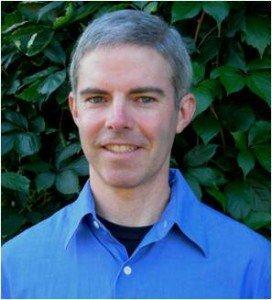 Rob Dietz brings a fresh perspective to the discussion of economics and environmental sustainability. His diverse background in economics, environmental science and engineering, and conservation biology (plus his work in the public, private, and nonprofit sectors) has given him an unusual ability to connect the dots when it comes to the topic of sustainability. Rob is the author, with Dan O’Neill, of Enough Is Enough: Building a Sustainable Economy in a World of Finite Resources.
Rob Dietz brings a fresh perspective to the discussion of economics and environmental sustainability. His diverse background in economics, environmental science and engineering, and conservation biology (plus his work in the public, private, and nonprofit sectors) has given him an unusual ability to connect the dots when it comes to the topic of sustainability. Rob is the author, with Dan O’Neill, of Enough Is Enough: Building a Sustainable Economy in a World of Finite Resources.

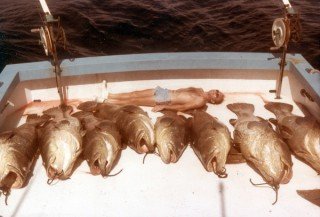
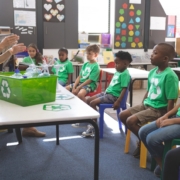
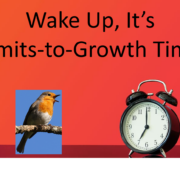


Good job done and I wish you success with Farmland
“What should I do?” –
On the basis that collectively, we are fucked: observe and think. Read widely. Figure things out for yourself. Go deep. Be quiet inwardly. Never think of yourself as a victim. Follow your spiritual path sincerely and conscientiously. If unable to do these things, recognize it and learn to do them.
Many thanks to Rob Dietz and much admiration for his excellent editing of “The Daly News”, (as well as his fine book, “Enough is Enough”) and very best wishes for his important new work with Farmland LP!
Brilliant post, Rob. Love the aikido analogy. Best of luck at Farmland LP, I am going to poke around and read more about it.
This is something I think we NEED to do: Apply peer pressure on anyone who wants to have a family with more than 2 children (2 is pushing it imho) Not many things will have a bigger impact than preventing the existence of more people living the 1st world lifestyle. If people want big families and don’t achieve it using adoption, they need to be shamed.
My latest book is “Hints for Managing Collapse” (April 2014). It is available on Amazon in its Kindle version and the softcover will be available in a week or less. We are already in the first stages of collapse and this book is all about solutions – physical, social, psychological and even spiritual.
If you want a deeper analysis, you can turn to my earlier book, “The Laws of Physics Are On My Side” (January 2013). That book is about one-third analysis from an anthropological perspective, with a heavy dose of thermodynamics. Two-thirds of that book is devoted to solutions. It should be no surprise to you that creating new wealth from the soil and spreading it out through decentralized solutions figure prominently. It is also available on Amazon.
Thank you for continuing to lead Rob. Best wishes in your new endeavors!